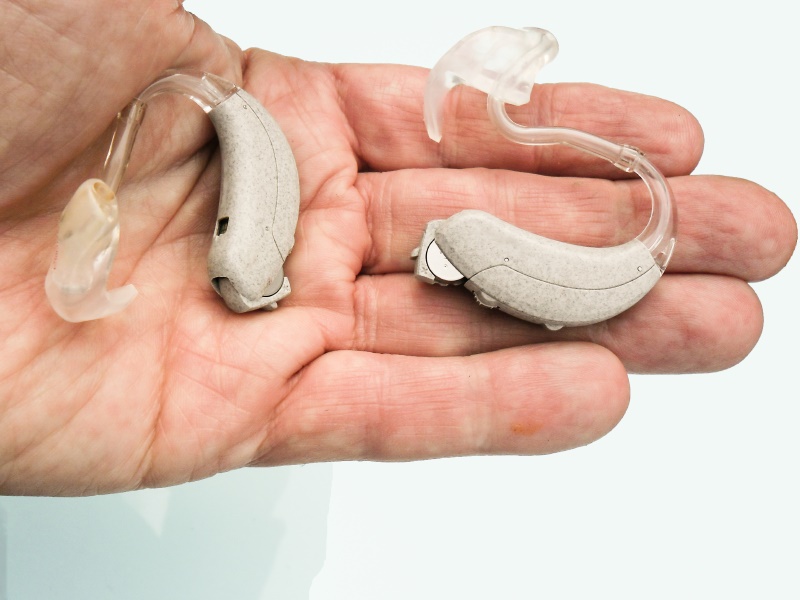
To help keep your hearing aids working properly for years to come, you’ll need to learn about proper care and maintenance. And although it may seem like an additional burden, with the right process your hearing aid care will become easy and automatic.
The secret is creating effective habits.
If you incorporate your hearing aid care into your day-to-day and nightly routines, after a while it won’t feel like any additional work at all.
Here are some tips for the daily care of your hearing aids (which your hearing professional will also go over with you):
Clean your hearing aids on a daily basis – Aim to integrate your hearing aid cleansing into your evening routine, so it will become as automatic as brushing your teeth. This is imperative because daily hearing aid cleaning can minimize the build-up of earwax, dirt, and dust into the various components of the hearing aid, which can cause distorted sound over time.
You’ll want to clean your hearing aid with a smooth, dry cloth, while averting any kind of liquids that could ruin the hearing aid electronics. Check with your hearing specialist for specialized directions on cleaning each model of hearing aid.
You may also consider buying a hearing aid sanitizer, which makes use of ultraviolet light to safely and thoroughly kill harmful pathogens. Hearing aid cleaning kits are also obtainable with all of the instruments you’ll require to safely clean the device without causing damage to the electronics.
Check the batteries – Hearing aid batteries should always be examined and replaced frequently to ensure peak hearing aid functionality. Consider using a battery tester early in the day to ensure you have enough power for the remainder of the day, and keep a spare set of batteries with you.
Before bedtime, when your hearing aids are not being used, turn them off and store them in a cool, dry location with the battery door open.
Store your hearing aids in a safe and secure place – In regard to storage, you’ll want to remember three things:
- Keep the hearing aids away from moisture. In other words, storing your hearing aids in the bathroom is probably a bad idea.
- Avoid subjecting the hearing aids—and hearing aid batteries—to extremes in temperature. You’ll want to store your hearing aids in a cool, dry place.
- Avoid storing your hearing aids out in the open, where they can become damaged.
We highly recommend storing your hearing aids in a case or drying kit within the drawer of a bedroom side table. This will protect the hearing aids from dampness, temperature extremes, and damage from being knocked off the table.
In addition, always take out your hearing aids prior to showering, swimming, or using a hair dryer or hair spray.
Maintain ear hygiene – Even though earwax has many favorable characteristics, like protection and lubrication of the ear canal, it can wreak havoc on hearing aids. As it becomes wedged within the hearing aid components, sound can become distorted.
Ensure that you’re sustaining proper ear hygiene, and if you have excessive earwax, think about setting up a consultation with a professional.
Properly put in your hearing aids – While inserting your hearing aids, lean over a table or soft surface in the event the hearing aids fall. Hearing aids include sensitive electronics, so a fall on a hard surface could cause significant damage.
Even with meticulous cleaning and maintenance, after a while the hearing aid will require more thorough cleaning or repair.
To ensure that you consistently get the best sound possible, we highly recommend having your hearing aids professionally cleaned by a hearing specialist at least two times a year.
Hearing care professionals can provide you with a deep cleaning, a tune-up, and will sometimes replace parts. Staying on top of this routine maintenance will expand the life of your hearing aids and will assure that you get the best sound.
